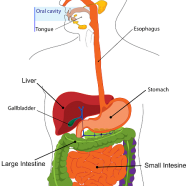
Irritated esophageal tissues need time to heal. This is achieved in essentially three approaches.
- By reducing gastric acidity so that any stomach reflux that reaches the esophagus will be less irritating to the tissues. 2. Maintain a high degree of pressure in the area of the esophageal sphincter in order to avoid acid reflux from the stomach. 3. Minimize direct irritation by food making contact with the inflamed esophageal mucosa.
1. Reduce the Stomach Acid Secretion
You can reduce gastric acidity merely by eating dinner earlier. Studies have shown when people ate their dinner at 6:00pm instead of 9:00pm; their gastric acidity was significantly lower.
As to specific foods, it takes only two cups of regular coffee or tea to stimulate gastric acid production. Chocolate does the same, suggesting that the culprit may be the methylxanthine content of these foods. Milk used to be thought of as an acid neutralizer; however, while it does have a transient neutralizing effect on gastric acidity, this effect is soon followed by a rise in acid secretion.
2. Tighten the Lower Esophageal Sphincter
In regard to the pressure in the lower esophageal sphincter, the ingestion of carminatives, such as peppermint, spearmint and chamomile, will decrease esophageal pressure. Note: Coffee, alcohol and chocolate, in addition to stimulating the secretion of gastric acid, are potent sphincter relaxants.
Fat dramatically decreases lower esophageal pressure, even in normal subjects. Persistent reflux occurred during the night in most trails only after a high fat meal.
3. Avoid Irritating the Raw Esophageal Lining
Food substances that further irritate the inflamed esophageal mucosa include chili and other spicy foods, tomato products, dairy, garlic, fish oil supplements and citrus juices. Avoid direct contact with coffee which promotes acid sensitive irritation and heartburn. Acid sensitive patients are sensitive to coffee even if its pH is adjusted to make it non-acidic. Also the high acidity of soft drinks appears to be the reason that their intake directly correlates with symptoms scores among people already suffering from heartburn. These dietary measures should become routing for anyone suffering from the disorder.
Liquid chlorophyll – 1 to 2 tsp. 3 times a day in 1 cup of water sipped several times daily or as needed
Lactobacillus acidophilus – 3 capsules daily
Fresh papaya, pineapple, kiwi – before a meal aids digestion
Essential Fatty acids – flax seed oil, salmon oil, evening primrose oil, twice daily
Medicinal clay – 1 tsp. to a glass of water 3 times a day, 1 hour before meals
Under Acidity
Digestive enzyme formula including the pancreatic enzyeme
Lemon juice or apple cider vinegar with meals will aid digestion
Low hydrochloric acid (HLC) – Betaine hydrochloride 3 capsules 3 times daily
Herbal Remedies
Lemon balm – relaxes a nervous stomach
Peppermint – stimulates bile flow, reduces nausea, nervous stomach
Fennel – take after dinner for gripping pains
Chamomile – relief of indigestion
Gentian root and leaves and Dandelion root – combine together for gas, indigestion, bloating and constipation.
Aloe vera juice – 2 tablesppons 3 times a day
Homeopathy
Lycopodium – gas, bloating after eating
Carbo vegetabilis – gas after eating simple foods and/or belching provides relief
Nux Vomica – indigestion from eating too much or fast; alcohol, coffee
Arsenicum – problems at night accompanied with much restlessness and burning pain.
Lifestyle Suggestions
One suggestion is to elevate the head of your bed with 3-6 inch blocks or foam wedges that lift your body from the waste up; sleeping on your side, stress reduction, exercise, quitting smoking and reducing alcohol intake. Do not eat before going to bed. Eat 4 to 6 light meals a day, instead of two or three large meals is highly important. Avoid ice in drinks. Try not to food combine: starches with proteins. Fruit intake; 1 hour before or 3 hours after a meal.
Medications
Most gastroenterologists and other physicians treat acid reflux and heartburn with antacids and acid blocking drugs such as Prilosec and Prevacid. Side effects of these drugs include headaches, diarrhea, abdominal pain and nausea. Furthermore, symptoms may worsen once you stop taking the drug and the underlying balance is not corrected. Some individuals taking Prilosec for several years notice a degradation of stomach lining. Medications such as aspirin and other NSAIDs (non- steroid anti-inflammatory drugs), calcium channel blockers, asthma drugs and hormones may cause reflux.
I have come across some herbal products I am not familiar with but look very interesting. I am unsure if they are available in Canada. A Chinese Herbalist may have these herbal products or order online.
The below TCM are only an extra suggestion for awareness and another option – however I have never needed to use these products in conjunction with the above recommendations.
TCM products are Ease Plus and Quiet Digestion
Ease Plus ( Chai Hu Mu Li Long Gu Tang ) contains: Oyster shell Mu Li, Dragon bone Long Gu, Bupleurum Chai Hu, Ginseng Ren Shen, Ginger Gan Jiang, Pinellia Ban Xia, Scute Huang Qin, Cinnamon Gui Zhi, Rhubarb Da Huang, Saussurea Mu Xiang. Oyster shell Mu Li Dragon bone Long Gu (fossilized minerals) are used to reverse reflux by quieting the acidity and redirecting rebellious qi downward.
Bupleurum Chai Hu harmonizes qi and has anti-inflammatory properties.
Rhubarb Da Huang guides energy downward.
Scute Huang Qin, a berberine-containing herb has ant- microbial properties.
Saussurea Mu Xiang harmonizes the flow of qi.
Ginseng Ren Shen and Ginger Gan Jiang strengthen the digestive organs and calm nausea respectively.
Pinellia Ban Xia harmonizes qi and dispels phlegm.
Quiet Digestion ( Poria Fu Ling, Coix Yi Yi Ren, Shen Chu Shen Qu, Magnolia Hou Po, Angelica Bai Zhi, Pueraria Ge Gen, Red Atractylodes Cang Zhu, Saussurea Mu Xiang, Pogostemon Huo Xaing, Oryza Gu Ya, Trichosanthes Root Tian Hua Fen, Chrysanthemum Ju Hua, Halloysite Chi Shi Zhi, Citrus Hu Hong, Mentha Bo He ), a remedy traditionally used for food stagnation.
Copyright © 2022 – All Rights Reserved – Michelle Honda Ph.D.
Announcement
Look for my latest book “Reverse Depression Naturally” (Spring 2020) “Reverse Inflammation Naturally” (May 31, 2017) “Reverse Thyroid Diseases Naturally” (June 2018) “Reverse Alzheimers/Dementia Naturally” (Nov.2018) “Reverse Heart Disease Naturally” (Jan.31, 2017) and “Reverse Gut Diseases Naturally Nov. 2016
Where to Purchase:
Reverse Gut Diseases Naturally Nov. 2016
Reverse Heart Disease Naturally Jan. 2017
Reverse Inflammation Naturally May 2017
Reverse Thyroid Disease Naturally June 28/2018
Reverse Alzheimers Disease Naturally Nov. 2018
Reverse Depression Naturally Spring 2020
Hatherleigh Press Page Buy Book RGDN
Local Book Stores in US and Canada
Disclaimer
While close attention was given to the accuracy of information in this article, the author accepts neither responsibility nor liability to any person with respect to injury, damage, loss or any circumstances involving alleged causes directly or indirectly related to the information in this article. The sole purpose is to educate and broaden ones awareness. This information is not meant to replace medical advice or services provided by a health care professional.





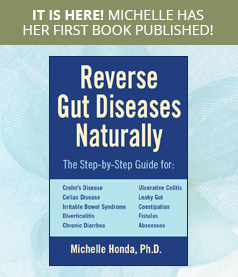

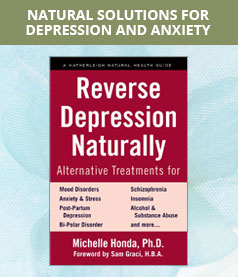
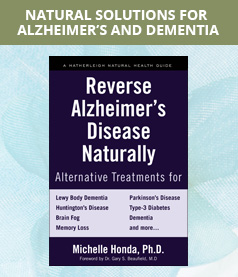
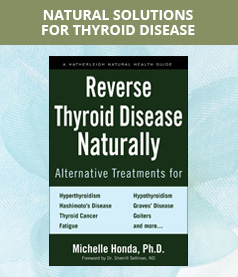

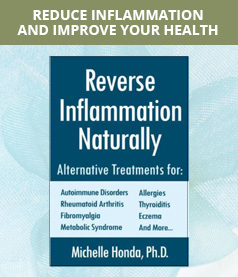
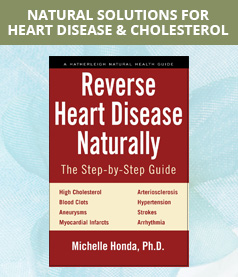
Follow Us!